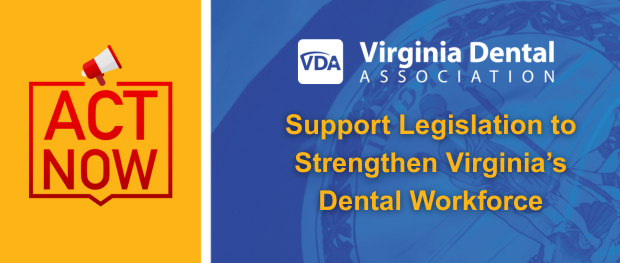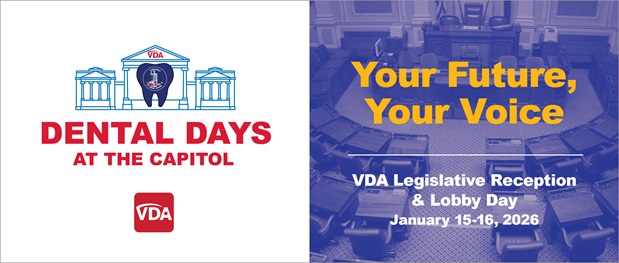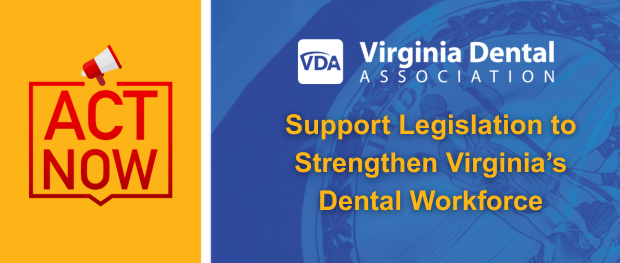CMS finalizes rule rescinding Parts C, D enrollment requirements
The final rule rescinds a previously announced rule that would have required dentists who provide dental care and prescriptions for Medicare Advantage patients and Part D beneficiaries to be enrolled in Medicare or to have opted out in order for their services to be covered.
The Medicare Parts C and D requirements have been a top advocacy issue for the Association for more than five years. The agency announced in November 2017 that it proposed changing the rule and rescinding enrollment requirements for Part C and D.
"This is another example of successful advocacy on the part of the ADA," said Dr. Steve Snyder, chair, ADA Council on Dental Benefit Programs. "This has made life simpler for dentists by not having to enroll in or opt out of Medicare to satisfy the Part C and D requirements and we are glad to see CMS recognizes the need to minimize interruptions to patients' access to needed care and medications."
The dental industry has also worked with the ADA on this issue. In 2017, the National Association of Dental Plans and Delta Dental Plans Association sent a joint letter with the ADA to the U.S. Department of Health and Human Services, asking the agency to remove the enrollment requirement for dentists and other health care professionals who participate in Medicare Part C or Medicare Advantage plans. The three organizations explained potential impacts of the requirements to CMS officials in a meeting arranged by the National Association of Dental Plans.
Evelyn Ireland, NADP executive director, commented, "NADP was pleased to work alongside the ADA and DDPA to change this requirement and assure access to dental services for the 13.2 million seniors relying on Medicare Advantage plans today."
According to NADP, Medicare Advantage plans now serve about one-third of the nation's senior population and that number is expected to be half of all seniors by 2027. The organization also estimated that 100,000 dentists are part of dental networks serving Medicare Advantage enrollees.
"Eliminating the registration requirement for dentists is a huge win for the patients that ADA [dentists] and NADP members both serve," Ms. Ireland said.
As a substitute for the enrollment/opt-out requirement, CMS will utilize a preclusion list.
"We believe that this change from an enrollment requirement to a preclusion list requirement will reduce the burden on Part D prescribers and MA providers without compromising our program integrity efforts," the agency said in its summary of the final rule in the Federal Register.
The final rule will go into effect June 15, and CMS will begin utilizing the preclusion list on Jan. 1, 2019.
The preclusion list was something the ADA lobbied for in a January letter to CMS from ADA President Joseph P. Crowley and Executive Director Kathleen T. O'Loughlin.
In the January letter to CMS, Drs. Crowley and O'Loughlin also asked the agency to rewrite the section of the rule that requires providers who order certain services covered by Medicare to enroll in Medicare or opt-out.
The ADA recommended applying the same preclusion list rules to those providers but the agency did not comply with this request. Dentists who order for Medicare beneficiaries clinical laboratory services (including sending specimens for pathology services) and imaging services still need to either enroll or opt-out for the providers of those services to receive payment.
The American Academy of Oral and Maxillofacial Pathology also continues to be concerned about the final rule.
"Any biopsies [dentists] send to any pathology lab will not be reimbursed by Medicare and if they refer patients to imaging centers, the imaging centers also will not get reimbursed by Medicare," wrote Dr. Paul Freedman, director of Oral Pathology Laboratory Inc. and director of the Section of Oral Pathology and the Oral Pathology Residency Program at New York-Presbyterian/Queens, and Dr. Renee Reich, associate director of the Oral and Maxillofacial Pathology Residency Program at New York-Presbyterian/Queens, in a letter to ADA on behalf of AAOMP.
Drs. Freedman and Reich shared data that indicated the average number of biopsies from Medicare patients received in oral pathology laboratories each year represents approximately 17 percent of their total number of cases. Of that number, as many as 30 percent of specimens are rejected because the referring doctor was not registered with the Medicare Provider Enrollment, Chain and Ownership System, known as PECOS.
"Failure to submit CMS 855O will have devastating repercussions for the specialties of Oral and Maxillofacial Pathology and Oral and Maxillofacial Radiology and also create problems for the referring doctor and their patients since they will not be able to submit biopsy specimens or refer patients to imaging centers," they said.
Also in January, the ADA noted that because of the confusion with the previous rule, some dentists chose to opt out and now are no longer eligible to be reimbursed for providing dental services for Medicare beneficiaries enrolled in Medicare Advantage plans, and those beneficiaries are also precluded from filing claims. Currently, a dentist who opts out for the first time is allowed to withdraw the opt-out affidavit within the first 90 days; thereafter they are opted out for two years.
"Many dentists did not learn of the impact on their participation in Medicare Part C plans until after the initial 90-day period had passed," the ADA wrote in January comments. Complicating the issue even more, CMS changed the rule so that effective June 16, 2015, unless the provider took affirmative action to withdraw the affidavit 30 days before the anniversary date, the enrollment automatically renewed for two more years."
In its comments to CMS, NADP also encouraged the agency "to work with Medicare Advantage contractors and dentists to provide more clear guidance and allow for a one-time opportunity (for dentists) to rescind an opt-out affidavit."
For a listing of all physicians and practitioners that are currently opted out of Medicare, visit cms.gov.
Follow all of the ADA's advocacy efforts at ADA.org/advocacy. "









